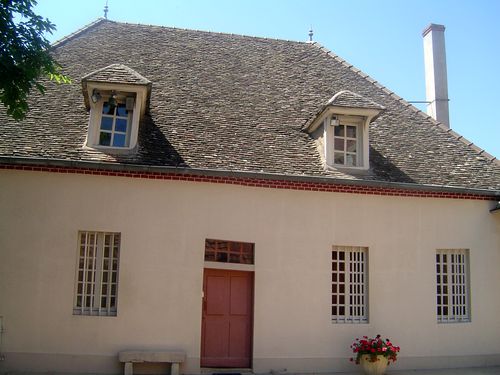An Empowered Woman - Anne Marie Javouhey


There lived a woman who loved God and His people ardently. She was none other than Anne Marie Javouhey. A native of Chamblanc in the Province of Burgundy, France , she was born on 10th November 1779 to Balthazar and Claudine Javouhey. Being the eldest of the surviving children , she enjoyed a happy childhood and became the sunshine of her home and the delight of her brothers and sisters.
When she was 10 years old, France witnessed the Religious Persecution. To the flocks who were left without a shepherd, Anne became an apostle. She took up the challenge and with an exceptional courage and heroic charity, she protected the faithful priests and she upheld the faith of the youth of her time by giving them basic Christian education and enkindling in their hearts, the fire of faith and love. At her very young age, she spent many hours in prayer in the family garden oratory discerning what God was asking of her.
On 11th November 1798, during a Eucharistic celebration in the presence of her family members, she consecrated herself to God by the vow of Chastity and promised to dedicate her life to the Christian education of youth, to the care of the sick and needy. In 1800, urged by the inner voice and guided by her parish priest she entered the Congregation of the Sisters of Charity at Besancon. There through a vision God revealed to her that she was called to found a Congregation of her own. So she returned home and continued her search for God’s will. It was during this time that she came in contact with the Abbot of the Trappistine Monastery Dom Augustine de Lestrange and he welcomed her to the Trappistines to try her vocation. During her formation there she was convinced that she was called for a more active life. Guided by the Abbot she left there and with the help of her sisters she undertook various works such as catechism, care of orphans, and education of children.
Foundation of the Sisters of St. Joseph of Cluny:In 1805 , Pope Pius VII came to France to crown Emperor Napoleon. On this occasion Anne and her three sisters had the privilege of having an audience with the Holy Father. The Pope blessed her and said, “ God will do great things through you for His glory.” With this assurance Anne met the Bishop of Autun and he invited her to Chalon and there on 20th August 1806 the first chapel of the future Institute was opened under the patronage of St. Joseph. She also got the authorization of her Religious Institute from Emperor Napoleon and the Decree was signed on 12th December 1806. With due preparation,on 12th May 1807, Anne, her 3 Sisters and five young girls pronounced their vows of religion in the presence of the Bishop of Autun in St. Peter’s Church , Chalon, France. Thus her long cherished dream came to a reality. In 1812 , the Mother House and the Novitiate of the Institute was installed in a property bought in Cluny by her father. And thus the Congregation came to be known as St. Joseph of Cluny .

Expansion of Cluny Mission : Anne Marie Javouhey and her first community pioneered the Congregation with great enthusiasm, courage and daring spirit. Having gained the reputation as one of the country’s leading educators, she was requested by the Governor of Bourbon to send Sisters to the French colonies to impart her system of education there. After a few years, the Minister of Navy called on the Congregation to send sisters to Senegal, Africa, to take care of the sick. In 1831, a movement began against slavery anda bill was passed emancipating all slaves in the French colonies. The French Government confided 500 slaves to Anne Marie Javouhey to start a colony in Mana, French Guiana. Her involvement with the emancipation of slaves earned her the title “ Liberator of Slaves”. Besides she was also called “ The First Woman Missionary “, “Apostle of Negroes “ and “ Promoter of the African Clergy “.
With a passion for God and passion for humanity , she lived far ahead of her times, to respond to the call of God as she discerned the signs of the times. She was an embodiment of forgiveness. Her prophetic intuition, her natural talent for teaching, her daring initiatives, her creativity – all had their origin in her unshakable confidence in God and her conviction that it was God’s work she was doing.
After having lived a life of love and sacrifice for 72 years she died on 15th July 1851 and was beatified by Pope Pius XII on 15thOctober 1950.
